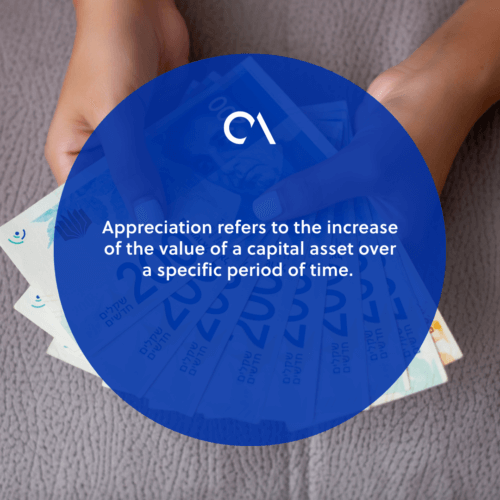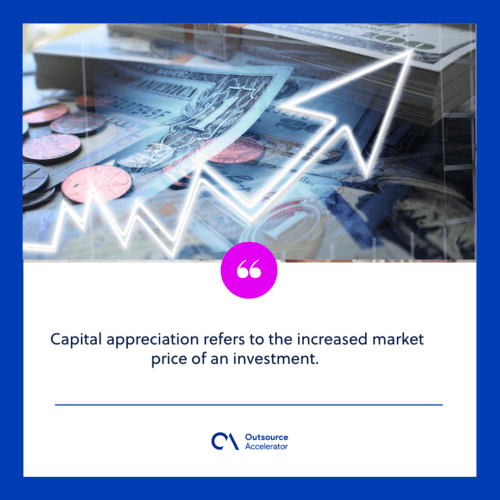Appreciation
Definition
What is appreciation?
Appreciation refers to the increase of the value of a capital asset over a specific period of time. It is the opposite of depreciation, which applies to the decrease in the value of assets over time.
Appreciation is used in several contexts, including accounting, finance, and economics. In finance, appreciation means an increase in the value of certain assets; for instance, real estate or securities (equities, bonds, or mutual funds).
On the other hand, the term “appreciation” in accounting refers to the adjustment made primarily to an asset’s book value.
Different factors affect why a value increase occurs, such as:
- changes in interest rate
- the rise in demand for an asset
- the supply of an asset might be reduced or restricted
- inflation rate

What is the difference between appreciation and depreciation?
Appreciation is the opposite of depreciation, which means a decrease in the values of assets over time. There are certain assets that can depreciate.
For example, cars, technology, machinery, and equipment are more prone to depreciation because of their finite useful lives.
Businesses keep an eye on both appreciation and depreciation since they are most likely to experience the two in their accounting cycles, such as for maintaining balance sheets or cash flow.
Types of appreciation
Here are the different types of appreciation; each plays a key role in the current financial market.
Capital appreciation
Capital appreciation refers to the increased market price of an investment. It is where the gains of investment in the market price are greater than the initial investment purchase price, also known as cost basis.
Most notably, different factors associated with market and asset classes are the key reasons why capital appreciation occurs.
For instance, financial assets such as mutual funds, ETFs, exchange-traded funds, stock, equities, securities, and commodities are the types of financial assets invested in capital appreciation.

Currency appreciation
Currency appreciation means an increase in the value of a certain country’s currency in foreign exchange. Looking at the nominal exchange rate or simply exchange rate system will determine the relative prices of a country’s currencies.
Reasons currencies appreciate include government policies, the rise of investment demands, trade balances, changes in interest rates, and economic cycles.
Trademark appreciation
Trademarks refer to intangible assets such as brand logos, designs, product lines, and symbols in businesses used to differentiate the product or service from its competitors.
Similarly, with other types of assets, trademarks may also face a gradual increase in value. In the advertising industry, it is essential to keep track of the value of IP assets (Intellectual Property) to calculate appropriate damages.
Essentially, tracking appreciation in each assets classes is important for investors and business owners as it will help them in their investment decisions. In most cases, poor tracking and analysis of appreciation of valuable asses might lead to decisions that can result in a devastating loss of money.







 Independent
Independent




